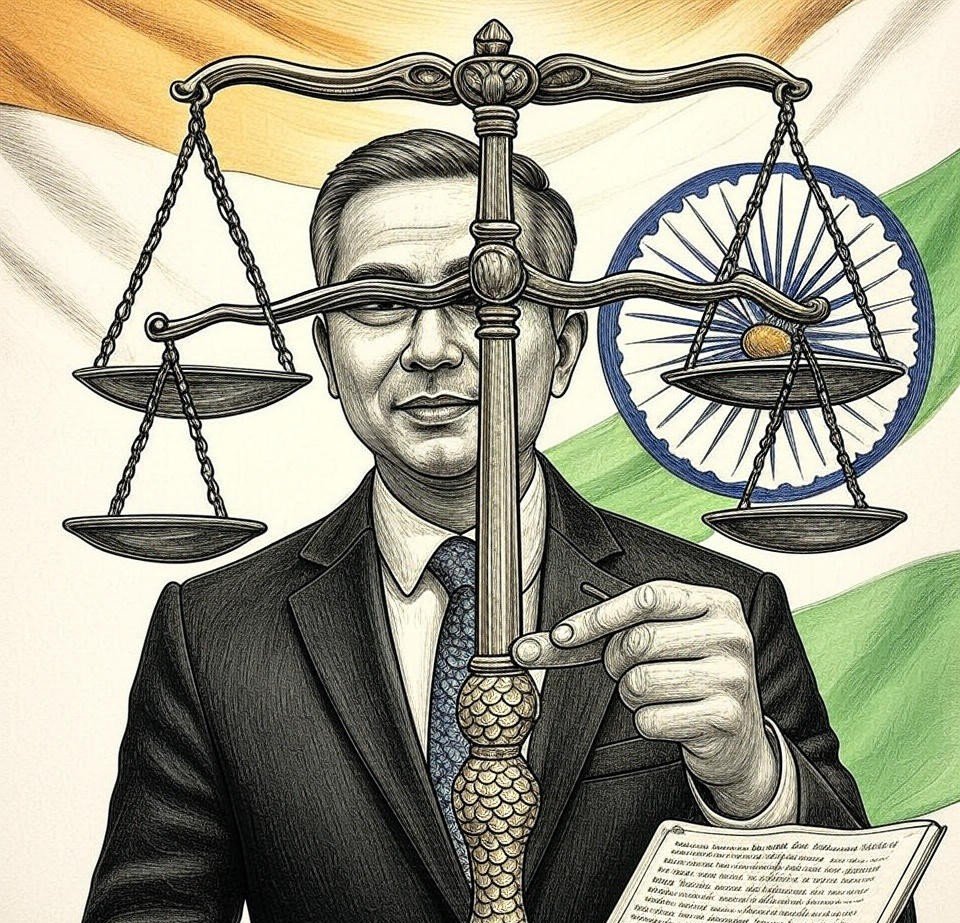Understanding Legal Petitions in India: A Comprehensive Guide
Navigating the legal landscape in India can be challenging, especially when it comes to understanding various petitions and their purposes. Whether you are an individual seeking justice or a legal professional assisting clients, knowing the different types of petitions is crucial
Introduction
This article will delve into various legal petitions under the Constitution of India and relevant laws, including Special Leave Petitions, Transfer Petitions, Public Interest Litigations, and more. We aim to provide a clear, detailed, and educational overview for anyone interested in legal processes, particularly those considering the services of Legal Light Consulting, LLC.
1. Special Leave Petition (SLP)
1.1 What is a Special Leave Petition?
A Special Leave Petition (SLP) is a legal provision under Article 136 of the Constitution of India. It allows a party to seek special permission from the Supreme Court to appeal against any judgment or order passed by any court or tribunal in India. The Supreme Court has the discretion to grant or deny the leave.
1.2 Special Leave Petition (Civil)
The SLP in civil matters can be filed to challenge decisions made by lower courts. For instance, if a party feels that a High Court’s decision is unjust or violates their rights, they may file an SLP to the Supreme Court for redress.
1.3 Special Leave Petition (Criminal)
Similarly, in criminal cases, a Special Leave Petition can be filed to contest judgments that may infringe upon an individual’s rights or lead to miscarriage of justice. For example, if someone is convicted and believes that the trial was unfair, they can seek an SLP to appeal against the conviction.
2. Transfer Petitions
2.1 What is a Transfer Petition?
Transfer Petitions are requests made to the Supreme Court or High Court to transfer a case from one court to another. This can be necessary for various reasons, including ensuring a fair trial or convenience for the parties involved.
2.2 Transfer Petition (Civil) under Section 25 of the Code of Civil Procedure
Under Section 25 of the Code of Civil Procedure, a Transfer Petition can be filed to transfer civil cases. For instance, if a case is filed in a court that is far from where the parties reside, a transfer may be sought for logistical reasons.
2.3 Transfer Petition (Criminal) under Section 406 of the Code of Criminal Procedure
In criminal matters, Section 406 of the Code of Criminal Procedure allows for the transfer of cases to ensure justice. For example, if there is a risk of bias in a local court, a party may request a transfer to a different jurisdiction.
2.4 Transfer Cases under Article 139 of the Constitution of India
Article 139 empowers the Supreme Court to transfer cases from one High Court to another to maintain uniformity and justice in legal proceedings. This is particularly useful in cases involving substantial questions of law.
3. Public Interest Litigation (PIL)
3.1 What is Public Interest Litigation?
Public Interest Litigation (PIL) is a tool that enables individuals or groups to file petitions in court for the protection of the public interest. Under Article 32 of the Constitution, any person can approach the Supreme Court for enforcement of fundamental rights.
3.2 Importance of PIL
PILs are significant as they allow citizens to seek justice for issues that affect the public at large, such as environmental concerns, human rights violations, and social injustices. For example, a PIL can be filed to address pollution in a river affecting the community’s health.
4. Review Petition
4.1 What is a Review Petition?
A Review Petition is filed under Article 137 of the Constitution when a party seeks a re-examination of a judgment passed by the Supreme Court. This is not an appeal but a request to reconsider the decision based on new evidence or legal grounds.
4.2 When to File a Review Petition?
Review Petitions are typically filed when there is a perceived error in judgment, such as an oversight of critical facts or misinterpretation of law. For instance, if new evidence emerges after a judgment, a party may file a review petition to present this information.
5. Contempt Petitions
5.1 What is a Contempt Petition?
Contempt Petitions are filed to address situations where an individual or entity disobeys or shows disrespect to the court’s order. Under Article 129, the Supreme Court has the authority to punish for contempt of court.
5.2 Contempt Petition (Civil)
Civil contempt pertains to the failure to comply with a court order, such as not paying maintenance as ordered by the court. A party can file a civil contempt petition to seek enforcement of the order.
5.3 Contempt Petition (Criminal)
Criminal contempt involves actions that undermine the authority of the court, such as publishing material that prejudices a trial. The court can impose penalties for such actions to uphold its dignity.
6. Curative Petition
6.1 What is a Curative Petition?
A Curative Petition is a unique legal remedy available under Article 137 for correcting a judgment that has been rendered in a case. It is filed after a review petition has been dismissed.
6.2 When is it Filed?
Curative Petitions are rare and are typically filed in extraordinary circumstances where a party believes that justice has not been served, often due to a violation of principles of natural justice.
7. Other Important Petitions
7.1 Petition under Article 131
Article 131 allows for disputes between states or between the Centre and states to be adjudicated by the Supreme Court. This provision is crucial for maintaining federal harmony.
7.2 Petition for Appeal (Civil) under Articles 132 & 133
These articles govern appeals to the Supreme Court in civil matters. Article 132 allows appeals on substantial questions of law, while Article 133 addresses appeals from judgments of High Courts.
7.3 Petition for Appeal in Election Matters
Under Section 116-A of the Representation of Peoples Act, 1951, appeals can be made regarding election disputes. This ensures that electoral processes are fair and just.
7.4 Petition of Appeal (Criminal) under Section 134
This section provides for appeals in criminal matters, ensuring that individuals have the right to challenge convictions or sentences.
7.5 Petition of Appeal under Section 379 of Cr.P.C
Section 379 allows for appeals against sentences of imprisonment, ensuring that individuals can seek justice if they believe their sentence is unjust.
7.6 Petition of Appeal under Section 19 of the Contempt of Courts Act, 1971
This section allows for appeals against orders of contempt, providing a mechanism for challenging such orders.
7.7 Caveat Petition under Article 148A
A Caveat Petition is filed to prevent a court from passing orders without notifying the person who filed the caveat. This ensures that parties have the opportunity to present their case before any decision is made.
FAQ for Legal Light Consulting: Special Leave and Transfer Petitions
Q1: What is a Special Leave Petition (SLP) under Article 136 of the Constitution of India?
A1: A Special Leave Petition (SLP) is a legal request made to the Supreme Court of India to seek permission to appeal against a judgment or order from a lower court. Under Article 136, the Supreme Court has the discretion to grant or deny the leave, and it can hear cases even if they do not involve substantial questions of law.
Q2: How does a Transfer Petition work under Section 25 of the Code of Civil Procedure?
A2: A Transfer Petition under Section 25 allows a party to request the Supreme Court to transfer a civil case from one court to another. This can be done for various reasons, such as convenience or to ensure a fair trial. The Supreme Court evaluates the merits of the request before making a decision.
Q3: What is a Public Interest Litigation (PIL) under Article 32 of the Constitution of India?
A3: A Public Interest Litigation (PIL) is a legal action initiated in a court of law for the protection of the public interest. Under Article 32, any individual or group can approach the Supreme Court to address issues affecting the public, such as environmental concerns, human rights violations, or social injustices.
Q4: Can I file a Review Petition under Article 137 if I am unhappy with a Supreme Court decision?
A4: Yes, you can file a Review Petition under Article 137 if you believe there has been an error in the Supreme Court’s judgment. This petition allows the court to reconsider its decision based on specific grounds, such as a mistake or oversight. However, the court has the discretion to accept or reject the review.
Q5: What is a Caveat Petition under Article 148A, and how can it benefit me?
A5: A Caveat Petition under Article 148A is a notice filed to inform the court that a particular party should be heard before any orders are passed in a case. It acts as a protective measure for individuals or entities anticipating legal action against them, ensuring they have the opportunity to present their side before a decision is made.
Conclusion
Understanding the various types of legal petitions in India is essential for anyone navigating the legal system. Whether it’s a Special Leave Petition, Transfer Petition, Public Interest Litigation, or any other type of petition, knowing the process can empower individuals to seek justice effectively.
Legal Light Consulting, LLC, is here to assist you with any legal needs you may have. If you require guidance or support in filing any of these petitions, please do not hesitate to reach out. Our experienced lawyers are ready to help you understand your rights and navigate the complexities of the legal system.







